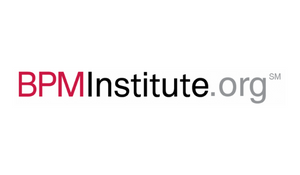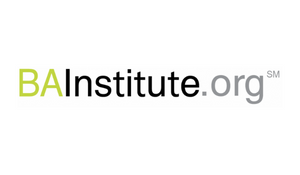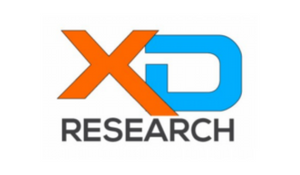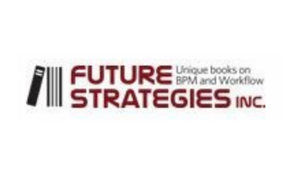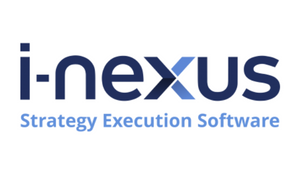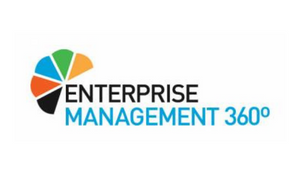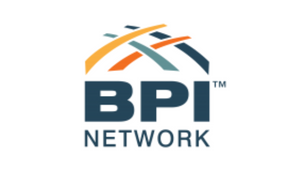
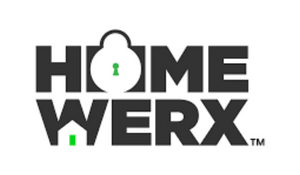
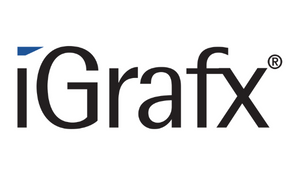
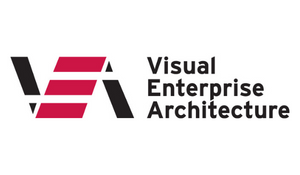
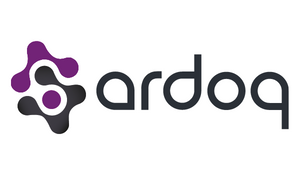
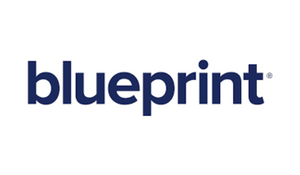
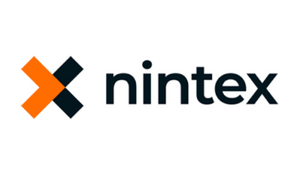
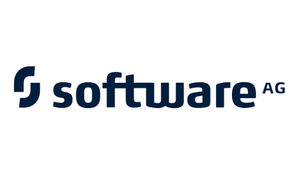
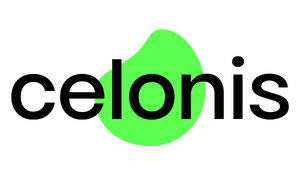
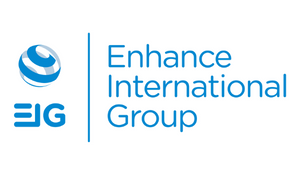
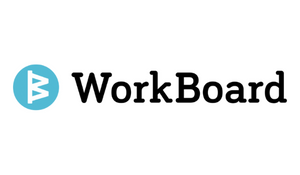
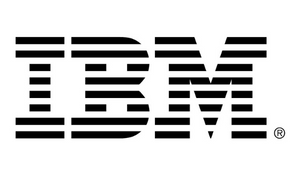
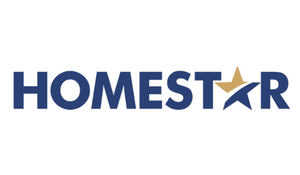

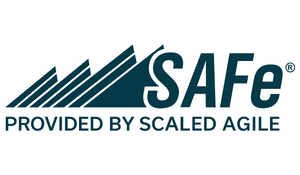
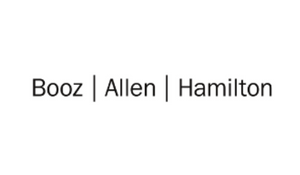
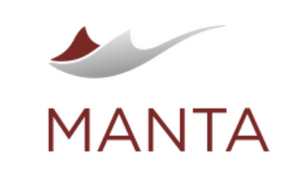
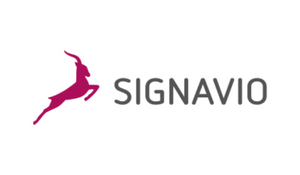
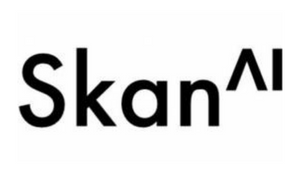

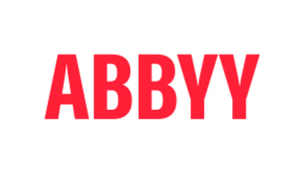

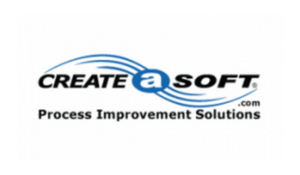

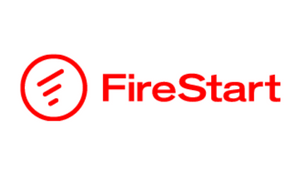

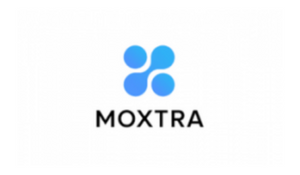
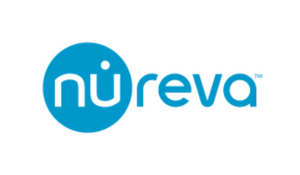
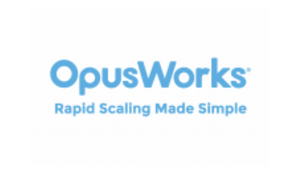
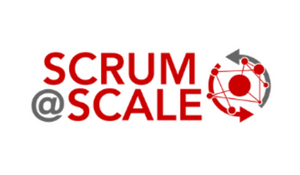
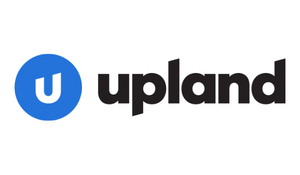
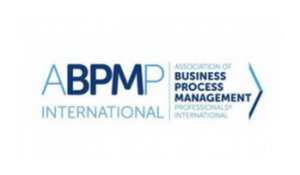
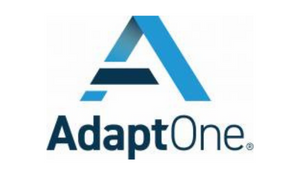
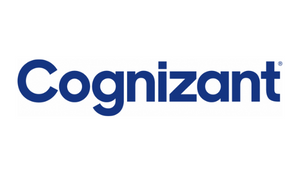
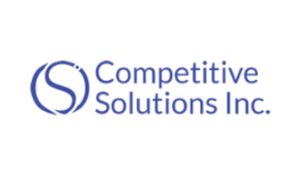
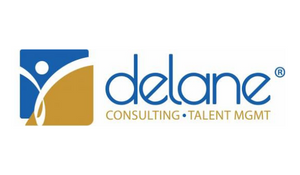

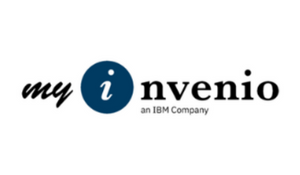
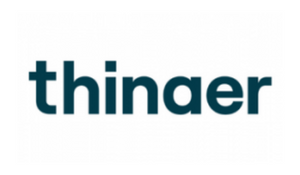
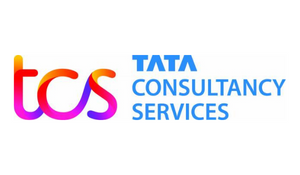
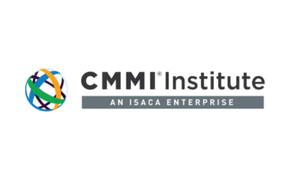
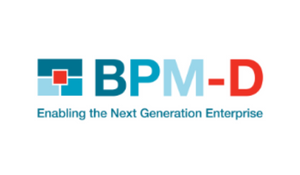

Courtesy of Enbridge's Biju Misra, below is a transcript of his speaking session on 'The Perfect Storm: Driving Operational Excellence in Oil &Gas' to Build a Thriving Enterprise that took place at BTOES in Oil & Gas Live Virtual Conference.


Session Information:
Applying the fundamentals and using a systematic approach to your improvement is critical now more than ever. Not only does our technology rapidly change, but so does the people using it. The fundamentals to the methods and tools have been modified, skipped, and/or politicized over the past decade leading to a deep approach rather than taking the first step of understanding how the enterprise operates. The structure and process must be in place for Strategic Planning, Policy Deployment, Annual Operations Execution, and Operational Excellence in order to keep your improvements sustainable. The approach must be packaged so that all people can be part of and accept the change. Key elements from this talk will be:
Session Transcript:
Good morning, because you, it's great to have you with us today from calling today, from Toronto. Right? To the right. Good morning to our U S from Toronto today.
Great to have you with us. ... is the Director of Corporate Business Services and Automation Center of Excellence for Arm Bridge, and he's a technological leader with over 20 years of hands-on experience in driving business transformation and operational excellence to achieve business outcomes. He has worked in Japan, India, the United States, and Canada, in energy health, care, telecom retail, banking, and government incredibly incredible, cross industry range.
He's a dedicated contributor to the community as an advisor, to non-profits and early stage startups to help define their value proposition and scale. It has a Bachelor of Science and Electrical Engineering from Kansas State University and an MBA from the ... School of Business, North Western New York University in the United States and Canada. So, visual. So, real pleasure to have with us. Thank you so much for taking the time to share this, your expertise and the journey in a moment of such dramatic change in the oil and gas industry.
Well, thank you. Yeah, good morning, and good morning to everybody who's was online, kind of listening. And this is a, we're just talking, when we started, that, this is an interesting opportunity, and the times that we are that we're able to connect in this platform and this way, across the globe. Many people contributing. So today, my topic is the perfect storm and driving operational excellence in oil and gas.
It's a 5 or 6 slide, so it's about 35 minutes, as as stated. We'll kind of go through it. And, of course, the intent here is for me to kind of share, as I talked to my peer group, within the industry, sort of what we're seeing, where we're doing, and really kind of challenging ourselves in this time, of, you know, not stopping the push for operational excellence, if anything, to double down on it in a time of pandemic and so on.
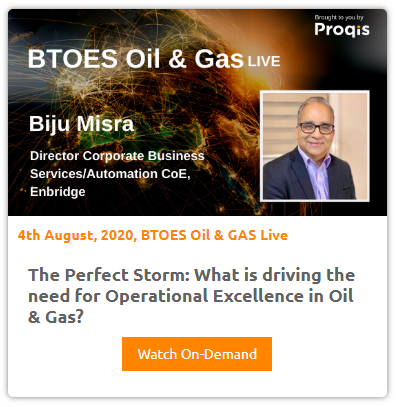 So, just to give you some context, you know, I worked for ambridge, we have for big business units, if you will. We have the liquid pipeline business that does, that's probably the world's longest, most complicated crude oil liquid transportation system. We also have our natural natural gas transmission ... visual. I don't know if you're sharing your presentation this point.
So, just to give you some context, you know, I worked for ambridge, we have for big business units, if you will. We have the liquid pipeline business that does, that's probably the world's longest, most complicated crude oil liquid transportation system. We also have our natural natural gas transmission ... visual. I don't know if you're sharing your presentation this point.
I just want to double check on that with you, because it's not coming across.
Yeah, it's on our Thank you. So, I think there's some, anyway. Yeah. So this, just, this is, you know, the company I worked for and kind of our assets across North America. For a big business lines that we have, as I stated, liquid pipelines, natural gas, transmission, gas, utilities. And, of course, you're growing renewable energy and power. So the context of the story that I will tell you is really rooted in this map that you see in the business we're in.
Just to give you sort of the well, you know what our industry faces today. one is, of course, supply and demand and buzz by, you know, the pandemic we're in today. As if there was a point when there was so much supply. So, there's always apply that, you know, it was almost like, what was being given away, and that, of course, has a huge cost. Pressure as we go through both our prices and price wars. You know, we saw enough, was changes in pricing or the oddity as well as, you know, price wars that were happening around OPEC, Russia, Iran, et, cetera. That, of course, create, created its own part of the perfect storm. That was happening as you're going through environmental regulations. Definitely, regulations way, into the industry, quite a bit as to what the regulator wants from the industry itself, as well as far as government policies and public opinion.
You know, there is a trend towards people be more environmentally conscious, and I'm expecting the industry to demonstrate that it is actually doing everything they can to be as responsible as possible, to what's happening. And that's true across, you know, whether it's plastics, whether it's oil and gas, whether it's retail, you see that everywhere that that's happening. And, you know, renewables are emerging.
Any major energy company today, as a renewable group, whether it be wind, solar, geothermal, whatever, may be the case, and that does create a different kind of abundance over time, and there's actually a abundance of energy In natural gas, for example, is the abundance of natural gas in North America today, which, of course, has all sorts of impact on, on commodity pricing. Then you have an older industry that has an aging workforce. You know, we see that here. We're not a lot of young people are getting in the industry, So that creates another kind of adding to the perfect storm.
Where, as the workforce ages, and as people know, and understand, that, collected this intellectual capital, over the number of years, it's becoming more and more difficult to keep it as people retire, et cetera. So, three major challenges that I really see, the industry is facing today, what is the reduction of costs, Operating costs, Apple cost, whatever. Maybe the case. Optimizing performance of assets, no cost. Risk performance, that, you know, making sure that you can extend it as much as possible, and, of course, improve their footprint, so that it deals with public opinion and environmental regulations, and, of course, those kinds of things. So, as I was thinking through, those are those are the three big things that, that the industry is facing today. That actually have to deal with even, you know the pandemic just makes it worse, asthma or puts even more pressure on the industry to reduce costs and optimized performance of assets because that is actually sold in that control.
 Driving the operational excellence, or, you know, I thought was really important is, you know, maybe we can get grounded on some common terminology. So, for me, you know, driving operational excellence is really execution of the business strategy better than the competitor does your end, depending regardless of where you are, whether you're in this industry or not. That, is really what it is. So operational excellence also relates to execution excellence.
Driving the operational excellence, or, you know, I thought was really important is, you know, maybe we can get grounded on some common terminology. So, for me, you know, driving operational excellence is really execution of the business strategy better than the competitor does your end, depending regardless of where you are, whether you're in this industry or not. That, is really what it is. So operational excellence also relates to execution excellence.
And there's lots of information and research out there and actually brute fact that driving operational excellence in any industry or any organization will lower your cost, will lower your operational risk and the exposure that you have. Because you are so focused and intent on exactly what, what that looks like.
Now, how do you do that?
Well, operations, right? And operations, tomato workflows.
So, understanding how you do work across the company, from an end to end perspective.
And really knowing what performance looks like becomes key in driving operation accidents. And the advantage we have had, over the last 10, 15, 20 years, has been this digitalization of business processes. So, whether it's ERP, or whether it's systems, and solutions, and technology, et cetera, has actually given as collection a lot of information. A wealth of information that now, you can actually look at and really understand what's happening. So the graph on the right is meant to say, that, you know, there's a huge, there's a gap between the rate of change of technology and the rate of change of business. Which means there is a delta that companies and organizations should and can leverage to actually be better, faster, cheaper.
No more dominating the market etcetera.
So, rapid innovation and convergence has reduced cost of lots of technology that is now available that wasn't there before. And because a lot of just digitalization is taking place within an industry as more and more systems are implemented, there's lots of information there that you no longer have to do. large-scale analysis because there's lots of things that are out there, tools out there. And I think next speaker from Soloists will go to the same thing. They do a lot of process mining the tools that, I have to tell you, what's happening within the systems that you have. So, there are two things that actually come out when it comes to reducing costs are optimizing performance of assets.
one is process automation, which is elimination of manual work. That's one, or increasing quality, or increasing speed and reducing cost, and the other one is process mining, which is visibility or how process actually working.
All those projects and all those system implementations that happen, where there's lots of focus on what the end to end process, looks like, I think a lot of people, if you were to actually do this, you'd be shocked as to exactly what is actually happening in those systems today compared to what you had envisioned it to be some time ago.
And, and that is just a fact, because as organizations mature, as a look at what they're doing as people move in and out, a lot of things change, You know why the challenges and Operational Excellence is. Exactly. That is, that if you don't capture some of that, IP that, people have and, or, there's really no way of monitoring and really knowing what that looks Like, things will change. and if you don't know where things are changing over time, it's like, a It's like, Well, assets, is it, right? Over time? You'll drive some inefficiency because people can go in and out of a process. And then, you'll have to re-engineer and your contract that you and say, well, this is a, this is a better way of doing it.
The difference now is you can do a lot of that without undertaking a massive projects, you know, which take time was Dick Amendment at a large scale. And with all the organizations, especially now if you look at what's happening, you know, in a pandemic where there's lots of lots of other priority that organizations are struggling with, no becomes really difficult. And for all the operations, like some people, it becomes very difficult to get traction.
Because in the list of priorities, you know, you're kind of dealing with the current state, it becomes really, really difficult to say, well, where does this lie, compared to everything else, and what does that actually mean?
So, I think driving operational excellence in this time, where we are, and I put it in the context of coal it, only, because that's where we are today, over and above other pressures that were already there for the industry is actually now.
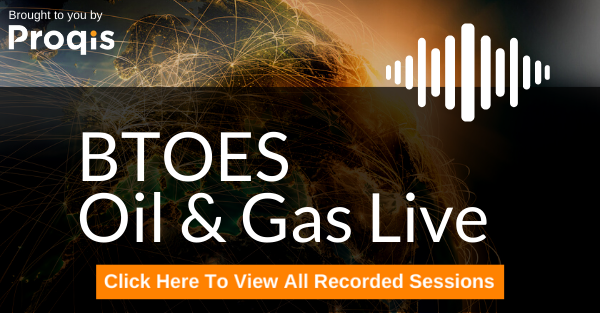 Right? There's no reason to actually stop, if anything, you should accelerate because of the fact that you are in a distributed environment today, because people aren't next to each other. There were lots of cases where, as we go through this, no operational excellence agenda.
Right? There's no reason to actually stop, if anything, you should accelerate because of the fact that you are in a distributed environment today, because people aren't next to each other. There were lots of cases where, as we go through this, no operational excellence agenda.
In a pandemic where it's a distributed workforce, You find a lot of processes breaks actually come out because before when people used to be next to each other, they'll work it out. But now, because there are next to each other, it's more difficult and more obvious of where there is opportunity for driving operational excellence to KPIs and metrics. The other one is that it is normal. It is very normal that.
As you go through this, that this probably won't be the only time when we have a situation like this. I think there's lots of studies out there that say, that business shouldn't be more resilient.
You should have a better business continuity plan. You should look at, you know, how do you survive and continue operating in a time when the situations like this could be more, and more, happening, and that requires.
Uh, to look at, you know, are there things in an organization? And in the process, from an operations perspective, you can automate. so, that are bought A robot processes robot, can still function processing the predictable, repeatable business processes, driving to a set of KPIs and metrics they have without any human intervention, so that things can continue. The other one is no time. And a difficult time economic times, you want to make sure that you have as much capacity as possible. Or people. and so, that you can redeploy them within an organization to look at something. Do other work Versus the ongoing, repeated and mundane work. So, I think that the rate of change is either use, is there, it's a matter of, you know, our organizations committing from an operational excellence perspective.
To leverage technology and people and process, You know, overall game strategy. To make sure that they're driving, you know, the best outcome possible. And if you look at, you know, some of these rapid innovation places, process mining and RPA are not limited to just one, you have to look across the company across every function that you have and really see, how can you leverage these things to, to drive excellence?
So my question is, well, great! So how do you do that? And what's the, what's the easiest and fastest way to do it?
So, I'm, probably, over the years, I've become more of a mentalist, which is, you really look at a situation and say, what's the minimum that you need to either get started, or what's the minimum that you need to either test something and see if it works? Or what's the minimum that you need?
Even when it comes to people who change, drive to be able to execute, so that, you know, what you see in front of you, as are kind of the two areas that I think, organizations who use and we are, as well, to leverage that drive, operational efficiencies. Whether it's quality, whether it's cost, whether its speed.
And I really drive out, you know, the, the excellent pieces of what we need to do. So for RPA, here's what I would suggest to be a minimalist No setup, a center of excellence, and in our, contrary to what I've heard from many people, it actually doesn't take long. It doesn't take long if you are a minimalist, Which is what is the minimum that you need to set up a theory.
You need a platform and you need some steps in a process to make sure that you can do assessments and, you know, build, test, deploy, and support.
That's the minimum that you need.
I would actually say that even when it comes to your staffing, you know, when you start out to find a couple of people within the organization, who are smart people, and then build out a network of partners and service providers who can help you get there faster. This is not a time to actually, you know, build it yourself. Because that's not that, one, takes too much time to, know, why not take something that's already there and run into it.
Part two, Point four. Repeatable. Predictable, consistent processes that have manual work.
That's a hunt, you know, look at end to end processes that you have from an operations perspective and supply chain, finance, HR. There is, this goes on and on. There's lots of material out there that actually kinda tell you, depending on which area you want to focus on, where the biggest bang for the buck is, Do it. Start with with a handful and get going once. You know, you have the co. Set up with some partners and prove, it's very easy to prove RFPs are probably the easiest ones to prove the business case. Because you're doing some work today and you're not doing it tomorrow after you implement very easy, Very easy to calculate the roi of the overall cost to it.
Quantify and automate.
So once you find these processes that have lots of manual touchpoints and work, quantify them. What does that look like?
.png?width=742&name=Screenshot%20(4).png) Do an estimate don't have to be accurate, arranges, just fine and automate it with Lean governance and no governance is very important. Of course, Right, but I'm a firm believer lean governance, which is, again, what is the minimum governance you need to actually execute, plan, and execute, and repeat? And, you know, for me, governance is also: How do you help teams to be successful, versus getting in the way, and asking a lot of questions, and asking a lot of reports, and so on. So, it requires a different mindset.
Do an estimate don't have to be accurate, arranges, just fine and automate it with Lean governance and no governance is very important. Of course, Right, but I'm a firm believer lean governance, which is, again, what is the minimum governance you need to actually execute, plan, and execute, and repeat? And, you know, for me, governance is also: How do you help teams to be successful, versus getting in the way, and asking a lot of questions, and asking a lot of reports, and so on. So, it requires a different mindset.
To actually operate and go fast.
There's, there is a debate continues to be debated in this process, Stuff, whether you should optimize first, and then automate, or issue to automate, and optimize. I'm a believer from experience now that if you automate what you have, one of the likely you'll get about 15 to 20% of benefit.
I'm not against optimization or artifact, I think you should automate first. Take the 20% and have a wave to that optimizes submitted that 20% 30, 40, 50, 60, 70, 80, whatever your target is so that in the time you're optimizing, you can still reap the benefit of the 20%. That just goes back to saying how do you get going faster, focused on the results? Lots of people tell me, Hey, we have 4000 RPM, We have 800 RPA, is just from experience. I've learned, it's not the number of RPA that actually matter because the value that they create.
So, you know, don't get side lined or sidetracked.
By having AARP 12 and A, there's actually better, you can have 10 RPA that create, you know, $4 million of benefit versus ..., produce $500,000 and leverage process mining tools, which bring me to the next point.
Process mining is know, what's happening in, let's say, your ERP.
Let's say, take procure to pay, for example, right? What is actually happening, and how are people actually interacting with the system?
And what are the processes that are actually following, versus what you think they're doing? And there's lots of opportunity when it comes to that. Way you can identify opportunities to drive operational excellence. Because you'll find that processes that people are executing in a system aren't exactly what you thought, and there's lots of efficiencies and automation to be there. Again, goes back to reducing cost. So identify one, minimalist approach. Don't identify and take seven months to do 500 processes. Pick one, get going.
Focus on ERP systems because they're easier, they're bigger. And there, I know that you can have a lot of end to end work, processes that you can buy with the company.
And, you know, and analyze, when you get the results from these tools, analyze what is actually happening, versus what you actually expected. And you'll find that there'll be some changes in systems. There'll be changes in processes, is a change management element to it, of getting people to do things differently. And you'll find there'll be a lot of opportunities for RPGs as well.
As in that process you will find that there are some inefficiencies that are happening, and what I can tell you, is that people will, thank you, for it, as rarefied because there's lots of pain and suffering that happens in people on staff that are doing some of those work, where they just can't believe they're still doing it. So automation and really kind of streamlining that. And remember, you really want to know how the process works today than president. My name is a great way of getting there, because our peers won't solve that problem and use that information to improve your process maturity.
So, as you find how things are actually working, then it gives you a chance to really understand what that looks like, and what do you need to do to change it. And always, always, always, as it is, from all the operational excellence people, always focused on results, Really measure what you're trying to do, and really understand how you iterate. My challenge to you would be that's just do it faster at a time like this because you don't have a lot of time. And the faster you go, the better it is, it is possible that you may have some missteps. That's OK, that's OK because you can always recover from it and do something different.
So, some leadership requirements drive to drive this to some degree of closure. As always, vision strategy. and outcomes are important. You have to have an end state that you want. You have to kind of know and be able to touch and feel what an outcome looks like. So, none of that goes away. You know, one of the things I've found in all of this is that the fundamentals are running business. Never go away. It doesn't matter what technology it is, Doesn't matter what framework you use. The fundamentals are always the fundamentals, and that's across industries, not just within our oil and gas. But it is important.
It is important to make sure that you think, but I would challenge you that, besides the vision, everything else that you do take also a minimalist approach because you have to one, use that vision to bring people along. To really understand what it is. They're trying to do it. Why. But even strategies can change, and outcomes can change, because you live in rapid innovation.
And that's why hyper awareness and agility is important.
You know, when I hyper awareness is, are you really aware of what's happening with the industry?
The changes and disruptions innovations that are happening then lets you capitalize on that to change a model or change your drivers or change your delivery mechanism to drive our patient access that you want. It is true for this industry as well.
Absolutely. You know, there's lots of work that's happened, you can look at actually the field.
I'm a big supporter of the field when it comes to field force and field staff.
You know, they'll live stuff, I don't know. I am not sure if all that discipline has always kind of translate the back office, and there is time, now, Do I really focused on the back office and say, I really as efficient as we could be. You really understand what that looks like.
And it's happening across this industry, Lean governance, agility, sorry, hyper awareness. Being aware agility is being able to navigate and pivot, depending upon what's happening. Because you do live in this industry at a time of rapid change.
 Whether it's IOT, whether it's, you know, all the, all the other technologies and tools that are emerging, whether it's around analytics, whether it's AI and ML. They're actually disrupting and giving you lots of opportunity to drive that efficiency that you're looking for, or that excellent, that you're looking for, Lean governance. You know, help teams get him, you know, get work done versus getting in the way. I always encourage, from a governance perspective, to have leaders say, what is it that I can do to move the needle faster? Versus a give me more. Because it takes the team time away from giving you more for, actually, the work that needs to be done, to actually deliver on the excellent agenda that you want.
Whether it's IOT, whether it's, you know, all the, all the other technologies and tools that are emerging, whether it's around analytics, whether it's AI and ML. They're actually disrupting and giving you lots of opportunity to drive that efficiency that you're looking for, or that excellent, that you're looking for, Lean governance. You know, help teams get him, you know, get work done versus getting in the way. I always encourage, from a governance perspective, to have leaders say, what is it that I can do to move the needle faster? Versus a give me more. Because it takes the team time away from giving you more for, actually, the work that needs to be done, to actually deliver on the excellent agenda that you want.
Really, systems and design thinking, I think many of you probably know this, design thinking, technique, empathy, et cetera. Prototyping, rapid, sure, right? And systems thinking, saying, the largest system is made up of components.
You really understand how that works, and I would, I would challenge you, to, really, really, really resist the temptation to start everything and be really broad. In this particular case. It can take a lot of energy for it within organizations that are dealing with a lot of thing, that there's just a lot of fatigue.
So sometimes it is easier and better to just start, show some results, scale faster, and see how that works. Getting Teams started is better than thinking about starting for sure. That goes back to some Agile principles.
I am, I, when I'm talking about Agile, and now we've talked about a methodology, per se, as it is thinking from a business perspective, Agility hyper awareness, understanding what your outcomes want, What you want being open to The fact that we need to pivot. because of disruption that's happening around you, I think, is one of those poor leadership competencies, I believe, now. And moving forward for every organization.
Especially within oil and gas, to really pay attention to always focused on the end state, You know, I have this thing about, have done this criteria. And some of these things are hard, hard. Because you really have to think about what does done look like for you.
And again, I don't, I don't preach that you should have eight months of big workshops to really think about. Because from a leadership perspective, it's more important the way you think done is and then socialize that with, with different people, different stakeholders within the organization, use that as an input to really crystallizing press.
What done this means and what it looks like.
If you have that, you'll find that the agenda moves faster, because everybody's kind of clear. So in this, in this kind of environment, as we experience it as we go, and I would say start small, scale fast, stay liberal, and results really, really, really matter. And be open to the fact that those are, The results may be different at some point in time. And because there's your environment is changing around you in an industry that is in rapid change. Because of all the different pressures that it faces. So you have to go and make sure that you're actually getting some of these things done.
So, are these easy to do? They're not, they're not, right because it takes energy and effort among all the other priorities that you have.
But the question is if not now, when right? If not in this pandemic or these other areas of disruption and or other that are happening, when would you do it?
right? And why wouldn't you want to do it? Today? Especially when? What you need from a tools and technology perspective? Is available to you at a fairly low cost, and doesn't require large, broad implementation scale of millions of dollars to do it. Why wouldn't you want to start small, and see, and test, and scale fast?
And that's what I would, I would leave with you in this, in this context. Is the industry changing? Absolute is, is it changing faster? In some cases, in some areas, for sure. In others, it'll catch up. Right.
Because disruption will force all of us to, to do that. The question is, do you want to get ahead of it now, or do you want to be forced to do it. And that's true for this industry, as it is for a lot of industry that have happen, that are facing this, this problem today.
So with that, thank you for your time, I hope you find that useful, And if you want to get in touch with me, if you get in touch with me, we can talk further.
Very good. Business. Very, very good, thank you very much for that. And I'm going to ask everybody now to who hasn't submitted their questions, you have to go ahead and submit it. I'm going to pick up the the first few here that were submitted and relayed that should be ...! So, Visual Martinez had the first question for you. And let me pop this out, so I can see the questions in the larger screen. So Anna says, great presentation. And what is your advice about getting individuals to understand that some tasks can be automated, like placing a PO, using RPA. What is your advice to those who only know one way of doing things, which is the manual way? And how, how you start moving them into a new direction. Yeah, it's a great question.
Been through it.
So one is, you know, The challenge with, I think a lot of the automation stuff is, people actually don't believe it's possible.
Many cases, I've seen this a lot. People are like, no, that can't be. So, I would say just take a small example and automate.
That's what I would say.
I think seeing is believing in many cases, I have found, actually, that when people see that, it can be done, in real terms, because you've actually taken something and automate it. They actually thank you, because they're like, oh my God.
Like, thank God, I don't have to do that again.
Right. So that's why they start small, scale, fast, comes round, right. If you now take a big finance process and you're like, I'm going to do the whole thing, don't do that.
Pick that small one element of a process.
Build it out fairly quickly because I think it's about 3 to 4 week turnaround time And demonstrate to people that it is possible, right. And once they see it, I can guarantee you that they will move. Because most people who are doing these routine mundane tasks don't want to do it.
They don't.
I've heard people say, this is like the best thing that's happened to me, because now X you can do something else.
Very good.
 Another question that we have here, ..., is, related more to the broader industry question. I mean, this is a major there's a major disruption going on and dislocation in the oil and gas industry side of the force that you talked about were happening before the pandemic took place. And then the pandemic. just exacerbated everything. And so the question is, how do you see the industry playing out in the next few months, maybe, in the next year or so? And we understand the big disclaimer here before he even answers. This question is that nobody can really predict the future, obviously, but we'll take, this is just an educated guess on, based on what you see across the industry, how do you think the next few bumps will play out?
Another question that we have here, ..., is, related more to the broader industry question. I mean, this is a major there's a major disruption going on and dislocation in the oil and gas industry side of the force that you talked about were happening before the pandemic took place. And then the pandemic. just exacerbated everything. And so the question is, how do you see the industry playing out in the next few months, maybe, in the next year or so? And we understand the big disclaimer here before he even answers. This question is that nobody can really predict the future, obviously, but we'll take, this is just an educated guess on, based on what you see across the industry, how do you think the next few bumps will play out?
I think, you know, as an industry are the next few months will be harder.
I mean, you know, if you look at sort of what's happening in the pandemic, I think, you know, as a client is open and we've seen a surge of infections.
Again, some countries have been able to manage, as a matter of fact, even countries that have managed it.
Japan, I was just reading yesterday, and Japan was proclaimed as the model to follow and now they're found infections are going up again.
So, I think it will be tough, probably for the next 3 to 6 months, I wouldn't even say next couple months.
If there's a vaccine, I think even Daniel take some time to actually have a global use of it, and even then with testing. So, are we in for some tough times as industry.
Absolutely, and that's one of the reason to kind of drive this agenda now so that you can have those reserves and or other capacity to survive for the next 3, 6, 8 months while this happens and even when there are the vaccines out, I think it'll be another six months after that before all of us have access to it.
Right, And that's the, that's the scary part of it, but I guess for governments and you had to open up, otherwise, how would you actually, you know, that's the problem with this, is you can't really predict it unless you actually try it.
So, in Toronto, I think we've been pretty good, about 130, some odd, 120 cases, or so every day, which is dramatically different than it was, I'd say, a few months ago. And that just comes from this discipline. So, it's tough, tough time. For sure, it's not gonna get easier, I think.
Do you see more consolidation happening in the industry is the result of what's going on here, are sectors that are more affected than others. I think so. I think there'll be consolidation of even within the industry.
Not all, all sectors are not all copies.
I've got the strength that perhaps the bigger ones do to sustain, and as long as these prices don't stay, and as long as this supply demand stuff doesn't change. I think you'll see, companies go through some really tough times. There may be more mergers and acquisitions don't know.
But it also depends on even for the big companies what their forecast is, activated unpredictable time.
I don't think it's happened like this before.
And then ... currently what sectors of the industry may be are faring better relatively to others.
I think wherever there is in our regulated industries, like, I think, I can look at her gas business. I think it's a regulated business, wherever there is. But even that, there's some customer consumer crushers, right.
So, but anybody in the oil businesses as is already for sure.
And it'll be interesting to see whether, as we come out of this, where there'll be more diversification as well within companies. And like, you know what?
Maybe we should not be just one trick pony. Maybe we should diversify.
And having multiple sources of revenue, so that, in times like this, you can sustain, the renewables is real. I think renewable events, as far as I know, in general, hasn't really been impacted, per se.
So, there's something to be said for that, for sure.
So I think we'll see that we may see more merger and acquisition.
Plus, I think there'll be diversification further, or maybe Contraction, or focus on Sim, very reliable, revenue's.
James, which these days? Who knows? Who knows what that is? Because everything changes, right.
So That's right. That's right. So, so this is a question actually posed by ... Khan, the related, and you address some of these about changes in the energy sector, in terms of business models and organizational restructure NACL. I also had another question more specific to operational excellence strategies, especially with your cross industry knowledge. Are there are there specific operational excellence strategies in the energy industry that may be unique, somewhat unique? compare to Healthcare Telecom and all this other industries? Is there a specific OE roadmap for the energy industry that you're aware of, it or not?
I think one thing I've come to the conclusion is, I think that fundamentals, like I've said, are always the same.
Know, is there, are there, every industry has something, whether it's regulatory, or whether it's legal or whether it's, you know, whatever it is, that every industry, I think, has its own kind of constrained model. But I think the fundamentals of driving operational excellence are the same.
You know, you really need to know, kind of, where the is really to understand how you're working. Whether that's the best thing. You really need to be clear on what the outcome looks like.
And are you really measuring the right things to know whether you're driving too bad or not?
And I think for, I think, an operational excellence context, I think that's easier to do across the number speak, But you don't want to have so many numbers that you can't figure out exactly what's going on. So, that's where the thinking comes out, right? Like, what is the minimum that you need to really know whether you're working the best way possible? And connecting them to business outcomes? I think. Whether it's technology, whether it's HR supply chain.
I think you have to look from an outcome perspective. So is there something specific? Not that I'm aware of, but Definitely. I think the process of saying, this is what we want as a company, and kinda working backwards to say, How do you make it happen? And how do you measure what's happening to really know in a minimalistic way? I think, always, get you there faster.
Very true. What it, Along those lines, The next question here asks about whether oil and gas companies are, they slower to adapt technological changes than that than other industries are?
Yeah, I would say, yes. I would say, yes, I think, But if you look at oil and gas for short, like we look at renewables, everything's gotta greenfields, so they're kinda start their own right, or the slower yes, and that's because, I think the industry has had the benefit of many years, of high commodity prices, of revenue streams that have been there. So a lot of times, you don't really have a burning platform to drive it.
Because if you think about, how, the industry works, and every time there is some sort of incident, like they mobilize, they mobilized so quickly, right. And it's, it's a, it's a case to be looked at, actually, Is like almost like Navy seal teams, right?
If there's an incident, like the company will move heaven and earth to, to fix it.
Do something about it, because that's a kind of a burning platform.
So I think at a large, maybe the industry suffers from that you have to have some sort of a crisis to actually mobilize and that's not a judgement of people. I think that just, it's a habit.
And today, now we have been lot of companies had to move people, you know, remote working when, you know, this industry like everything else debated about working from home for years.
Right. But within weeks, everybody was working from home and everything was set and, you know, there's lots of now thing, well, productivity is up and so on.
.png?width=742&name=Screenshot%20(4).png) So my, my personal view is that this industry kind of requires a burning platform.
So my, my personal view is that this industry kind of requires a burning platform.
But when there's that burning platform, then Lookout, because it will mobilize to do meet, it's near horizon as quickly as possible.
And I think that's what's happening now.
That's what's happening now.
Which is, you don't have a lot of choices, especially in an unpredictable future.
So, should you know, what do you focus on? You know, I think prioritizing faster.
They were looking at value, generation, foster. You're looking at the asset and lesson planning, and risk cost performance. Like, all these things that, that have occurred, I think those are faster.
So, yeah, I think if you're in this model, for people even who are trying to automate and all this process of buying stuff, this may be the best time to really gain some traction.
But the key is, how do you execute fast and show results fast so that people don't lose interest? And I think once you do that, you have a limited attraction, then, I think, is a snowball effect and people will come.
It's a very easy case to make.
No, you were doing manual today. You're not doing manual tomorrow.
Nothing could be clearer than that, right. Yeah.
Yeah, know, it took to illustrate what you're just saying. They are working across multiple industries as well. Any specific in the energy industry, we had been on digital transformation journeys for the past five years and we couldn't get it done. And the because there was enterprise risk management and multiple layers of current needs to go through to get a simple change done and security risks that we're going to break us. Anyway, long story short after the pandemic, a five year transformation was done in five days. And I just said that burning platform does seem to be the needed for the oil and gas industry. Now, I'm just curious now, this is just me, personal question. I think my working within the industry, part of the reason for that, is that the industry has been around for decades. If not, centuries.
And, and, and there are very smart people in there. And there is, there's this hyper awareness about safety and security as it should be, and, and maybe it's a combination of those factors that make it difficult for, for them to drive change from within, without that burning platform. Yeah, I think, you know, safety, of course, in this industry. I think it's, it's paramount. It's critical. Even even for us or one of our values is around safety. So, of course.
Right, I think in times like this, from a leadership perspective, I think the lead from a position of curiosity really examine what it is that you have and, you know, kind of go back to an operational excellence. People are always kinda during my box. You always try to find that nugget of information. That gives you a clue. I would argue that you should. Everybody should do that. Now this is the time to really curious about and really challenge yourself saying, is that really what it is that For the longest time, for example, everybody talked about safety and risk, and so on.
Then, you know, asset investment planning kind of came into the picture and saying, Well, there's a balance, right. And yeah, risk is important of course, you have to have the license to operate for safety is important.
Of course, performance is important. So what is that optimal balance that you'd find across versus skewing one or the other because the consequences are?
So it is, it can become difficult.
But no, I think you have to say, what are your options today?
You know, what are you going to do?
And I think people will find that if you kind of go by fact, you really get to become curious about every aspect of the business you're in. I think there's opportunity, for sure.
I mean, I think it would be, it would be unfair of us to say that there's no opportunity within organizations.
At any given time, let alone. At any given time. That's our Operational Excellence, people do, right. Define stuff, based on fact.
Yeah. Yeah.
So the next question here, ..., is about the, the electrification of society at large extent. And the question is, what is your field on the impact that that is going to have on the oil and gas industry, I mean that was already again happening before the pandemic. There is a, there is an assumption here that it's accelerated as a result of the pandemic is is it is it. I mean, the oil and gas industry tends to overall dismiss it, as, you know, it's the less than 1% type of thing, but has that change, or, is still the same.
I think you somewhere in the middle, I think that change, you know, I think the industry is, you know, as I talked to my peers, I think we're still trying to figure out what that is, and what that actually means.
But across, I mean, I think everybody's facing that is that, I think the worst thing you can do, in any situation is not, I think that's where the hybrid awareness comes from.
Be really aware about what's happening around you, so that you can craft and more strategies. Is that a big topic of conversation? I don't think so. Will that be a big type of conversation.
Once we slowly get out of this is a, how did the world change? Yeah, I think so.
Absolutely. Or I don't think it's something we can ignore.
Right, is, I don't think any industry can ignore is kind of what's happening around it. And it will be different. I mean, before the session, we're talking about, you said a 30%. I agree with you. I mean, to say that, we will come out of that as being exactly the same.
Even, not only how we do business, even how we work, you know, what leadership looks like, how do we manage people and kinda how we go through it. I think it'll be different.
And the electrification pieces will come. And I think it'll be a topic of conversation today. No different than on the other side of the industry.
You know, if you are in the electricity business, you should've been thinking about what's going to happen when, no, you have a solar panel on your roof with a small wind turbine.
If you're in that industry, you better start thinking about how are you going to monetize that.
All right.
Otherwise, no, centralized energy distribution, I think, is, will, that will go, either you'll be distributed, I think you'll be contributing to the grid, that's what I think, I think you'll be generating enough for to run your house and everything else, and contribute to the grid, or the other industries who can use it.
So, if you're at any sector of the energy industry, you should be thinking about what decentralization looks like that's really liked and operating to monetize?
Yeah.
That's right. I have a, have an energy CEO that I work with. The says that this industry has very long cycles and that you think about it in a while back. This. Distributed energy was the way that everybody Operator, I do have a little diesel generator somewhere and then when they became a centralized and we're seeing a reversal of ancient decentralization. So, that technology is changing. The cost of solar is actually going down.
It's becoming more and more favorable the ROIs, lesser, you know, faster and faster.
Yeah. I mean, there are, there are already people who live off the grid.
Yeah.
one of these days, somebody's gonna ask if they can live off the grid, why can't we all the tough for people like me, it's like, Well, I don't know that we're in the energy business, but that's why.
Yeah.
Visual, real. Thank you so much for taking the time to come here, share your expertise with us, and we really appreciate it. And, you know, it's a real honor and privilege to to have you here, and then talk to our audience directly, so thank you very much. Thank you so much. And thank you, for everybody who were listening for the questions.
Thank you very much, OK, thank you.
All right, ladies and gentlemen. This wraps up this segment of oil and gas live at the top of the hour. We're going to be coming back with Christopher Hall, who's going to talk to us about process excellence and how to navigate uncertainty and prepare for the future by approach, by using a process excellence approach. And Chris is going to talk to us about technology about the process excellence approach and how we combine all those factors. So, we're gonna close this segment, we're going to log back on at the top of the hour, and we hope to see you back then. Thank you, Bye, bye.

-2.jpg?width=235&name=more%20(89)-2.jpg) Biju Misra,
Biju Misra,
Director Corporate Business Services/Automation CoE,
Enbridge.
Business and Technology leader with over 20 years of hands-on experience in driving business transformation and operational excellence to achieve business outcomes
Creative change agent and thinker with extensive knowledge to how to incorporate innovation into business strategy and evolving organizations to achieve their business goals
Experienced in crafting a vision, developing strategy, directing complex programs, Operational excellence, and building high-impact teams
Passionate about working with organizations and teams at all levels to create new possibilities and drive value creation
Background brings a unique perspective on what works, what does not work, and what it takes for organizations to implement change.
Dedicated contributor to the community as an advisor to non-profits and early stage startups to help define their value proposition and scale by leveraging experiences as a co-founder
A strong believer that theory only matters if it can be applied and create value

View our schedule of industry leading free to attend virtual conferences. Each a premier gathering of industry thought leaders and experts sharing key solutions to current challenges.
View Schedule of EventsWelcome to BTOES Insights, the content portal for Business Transformation & Operational Excellence opinions, reports & news.
-------------------------------------------------------
Search for anything
Insights from the most progressive thought leaders delivered to your inbox.
Insights from the world's foremost thought leaders delivered to your inbox.
Being a hero is all about creating value for others. Please invite up to 5 people in your network to attend this premier virtual conference, and they will receive an invitation to attend.
If it’s easier for you, please enter your email address below, and click the button, and we will send you the invitation email that you can forward to relevant people in your network.
View our schedule of industry leading free to attend virtual conferences. Each a premier gathering of industry thought leaders and experts sharing key solutions to current challenges.
View Schedule of EventsWatch On-Demand Recording - Access all sessions from progressive thought leaders free of charge from our industry leading virtual conferences.
Watch On-Demand Recordings For FreeDelivered by the industry's most progressive thought leaders from the world's top brands. Start learning today!
View All Courses NowThe premier Business Transformation & Operational Excellence Conference. Watch sessions on-demand for free. Use code: BFH1120
Watch On-DemandInsights from the most progressive thought leaders delivered to your inbox.
Insights from the world's foremost thought leaders delivered to your inbox.
Being a hero is all about creating value for others. Please invite up to 5 people in your network to also access our newsletter. They will receive an invitation and an option to subscribe.
If it’s easier for you, please enter your email address below, and click the button, and we will send you the invitation email that you can forward to relevant people in your network.
Courtesy of Nintex Pty's Paul Hsu, below is a transcript of his speaking session on 'Improve employee productivity during and post-COVID by ...
Read this article about HP, Best Achievement in Operational Excellence to deliver Digital Transformation, selected by the independent judging panel, ...
Read this article about BMO Financial Group, one of our finalists, in the category Best Achievement in Operational Excellence to deliver Digital ...
Read this article about Cisco, one of our finalists, in the category Best Achievement of Operational Excellence in Internet, Education, Media & ...


